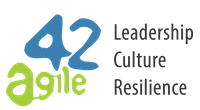Exercise for Systemic and Relational Engagement Utilising The Market of Skills
It can be challenging to get a ‘snapshot’ of a team as well as to get the value clear that each team member brings on a relational as well as a technical level. The following describes a brief exercise that can help facilitate a session to help with this.
The Idea
- Make ‘hard’ skills visible
- Make ‘soft skills’ and interests visible
- Get a physical representation of needs or wants
- Improved relationships and insight into each other’s views
- Highlight the value of synergy of skills
- Make latent/unused potential of the team visible
- Get some sort of physical representation of the communication lines in the system
The Exercise
Each team member generates a set of skills that he would like to make known to the rest of the team. A good method to facilitate this is by allowing 5 minutes for silent writing and self-reflection. The skills can include hard skills like eg. ‘I am a Java expert’ to more unknown personal skills eg. ‘I am a chef’.
- Make sure to ask an open question to elicit this but create flexible boundaries that leave space for divergent thinking and personal exploration. You will most likely encounter resistance here since some team members will not be used to these types of open questions. Make clear that anything is ‘good enough’ and there are no correct answers.
Have each team member create a poster containing all the skills that he has written down. An example poster can be seen below.
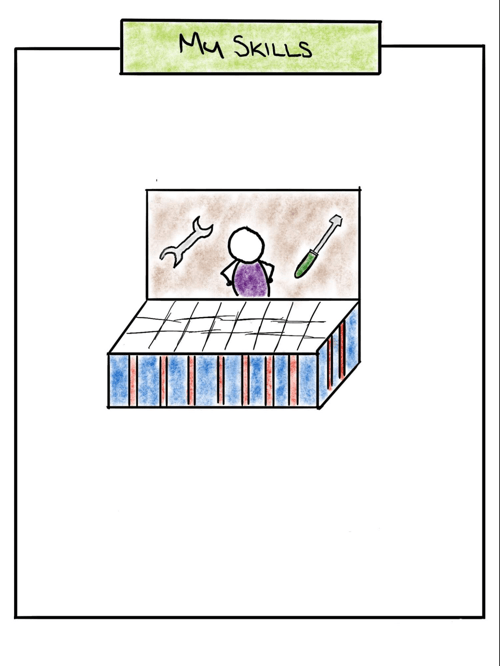
The entire team walks the room together and each team member gets the opportunity to briefly explain his poster to the rest.
The team members now individually walk the room and make notes of the ‘skills’ that they would find useful from other team members. They would, for instance, generate an A4 page per person listing the items that they are interested in, categorized per team member excluding themselves. Each person should end up with a list specifying which skills/characteristics he would like to either assimilate or know more about from other team members.
Next, prepare some rope and a set of scissors. Make sure you have enough rope. Around 100m should do the trick depending on the size of the team.

By the team gathering together and each team member sharing what he finds valuable from other team members, the team will start to self-organize to create a ‘mesh’ representing their intertwining needs. This is how it works:
- Person A takes his turn. If he is interested in a skill from person B, he will share the need (verbally) that he has with person B and then present him with one end of a string while holding on to the other end.
- The team member whose turn it is will complete his entire round before the next one takes his turn. Guide the conversation in a direction that stays relevant and help the members keep the conversations concise and short.
- One link between two people is sufficient but make sure the conversations happen when taking turns even if the link already exists. There will thus be a single link between person A and person B independent of how many ‘skills’ he is interested in from that person.
- This will continue until every member has had an opportunity to speak.
Outcome and Value
A visual representation of the system presenting needs as well as necessary and current communication.
- In one example the PO added all his PO skills to his poster but no PO skills were ‘purchased’. This is quite a significant insight into what the team sees as the role of the PO.
- The same case existed with the team manager, he offered some technical skills to the team but it became clear that they expected him to resolve challenges on an organizational level.
Key team members which might present a risk to the team by either being a dependency or dominating the team can be highlighted. Simply count the number of connections to a person and it should become clear.
The team realized that they were not as needed as they initially thought and that the team had a lot of capacity available to pick up the slack.
Conversations were started which were socially focussed instead of purely business-focussed eg. “We never knew that you were a chef we need to try your food” OR “Wow, you build robots in your spare time…like Skynet.”
If a concrete outcome is expected from the session, it can be useful to note some retrospective actions. The main purpose of the exercise, however, is to have good open conversations.
Examples
An example of a team with healthy communication lines and is well balanced in terms of relational and/or technical skills.
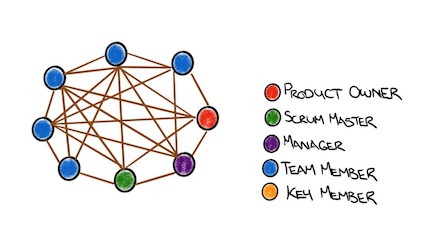
An example of a possibly more hierarchical system where there are some possible unhealthy dependencies on a key team member. The team can decide how to address this dependency in order to limit the risk to the team.
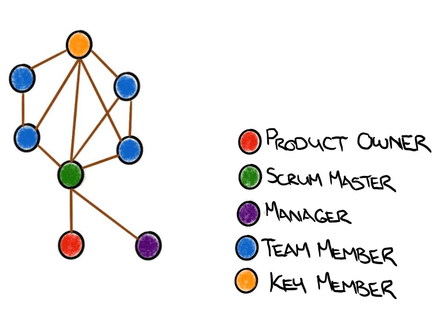
Things to look out for
- Someone who physically separate themselves from the pack when doing the exercise. This comments on how included they feel.
- Individuals who do not want to make use of the skills of others. I have had someone ask: “Am I allowed to buy my own skills?”
- Expected outcomes such as: “We would like a table or document showing ABC.” If your intent is not to use the conversation to get more insight into the system, helping the team to do the same as well as to facilitate good conversations, this is not the exercise you want to go for.
Cheat Sheet
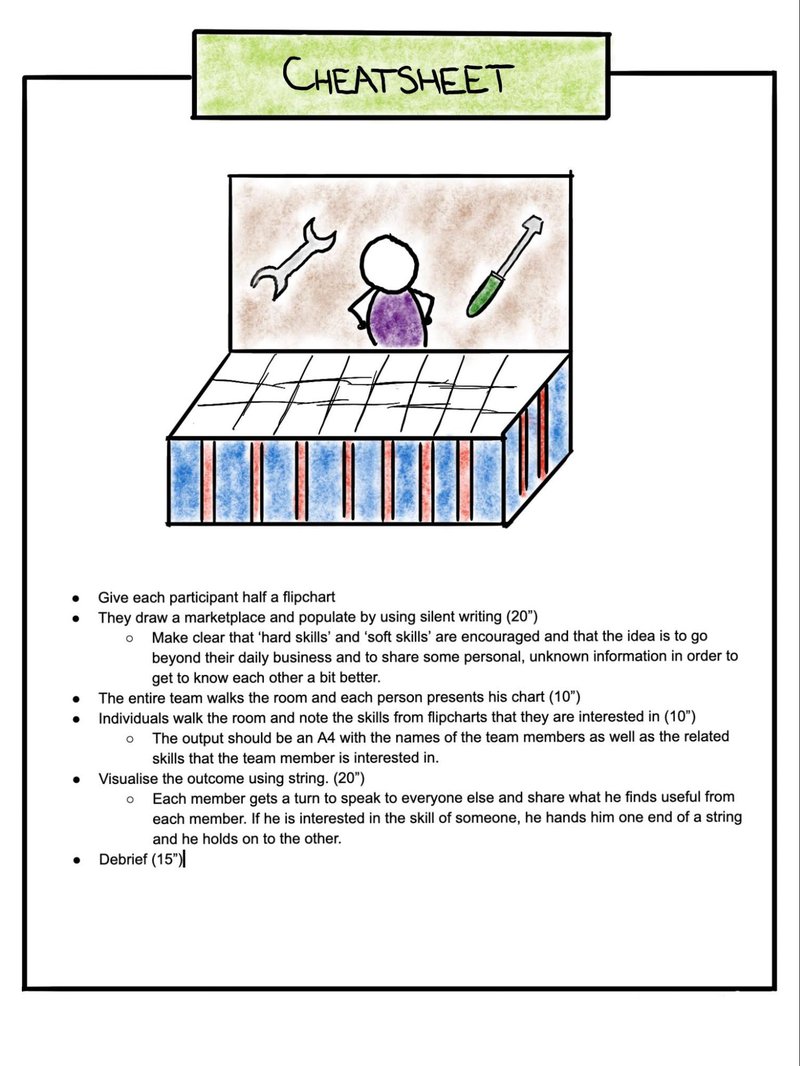
Download the Market of Skill cheat sheet
